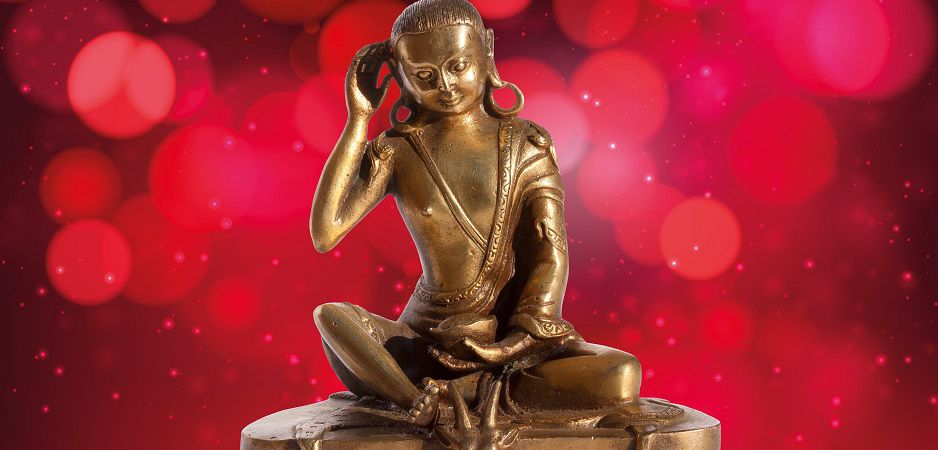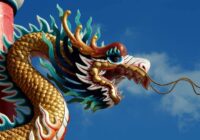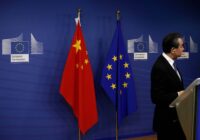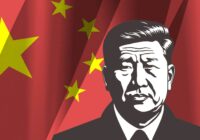China is in a bind as North Korea’s nuclear explosion heightens risks of a calamitous catastrophe.
Last week, Houston was in the limelight. This week, the Indian subcontinent is under the microscope. For centuries, the monsoons have brought both life and death to this region. Without a good monsoon, ponds run dry, rivers shrink into a trickle and the land turns parched. Crops wither, cattle die and human beings suffer hunger if not death. Yet far too bountiful a monsoon brings floods, disease and death.
According to the United Nations, monsoons have brought misery to more than 40 million people this year. Floods and landslides have killed at least 1,200 people in India, Bangladesh and Nepal over the last fortnight. A third of Bangladesh is under water. Torrential rains, waterlogged streets and collapsing buildings have brought life in Mumbai, India’s financial capital, to a standstill.
The only silver lining for the region was that India and China ended their standoff over Doklam. Both China and Bhutan, India’s most loyal ally, claim this region. The Indian press claimed a great victory because this is the first time India has confronted its bigger neighbor and not backed down. M. Taylor Fravel, a professor at MIT, believes India did not quite “win” the standoff. Regardless of who won the confrontation, it is reassuring that these two nuclear powers kissed and made up.
The last edition of The World This Week highlighted how circuses are distracting humanity from the compelling issues of our times such as increasing inequality, rising authoritarianism and climate change. It turns out that English Premier League clubs spent a record £1.4 billion ($1.81 billion) during this summer’s transfer window. This is 23% higher than last year and the sixth consecutive year that spending records have tumbled. Other European clubs have spent well over $1 billion as well.
Roy Keane, the former Manchester United captain, joked that some of his teammates would cost $1 billion and Ryan Giggs $2 billion. The Irishman quipped: “If ever there was a time to be a professional footballer it’s now. Average players are going for £35 million [$45.4 million], my goodness.” Keane is right. The football marketplace has gone absolutely bonkers. If this was a time of robust economic growth, flourishing schools, well-run hospitals, a rising middle class and decreasing poverty, this spending would make sense. However, this orgy of expenditure on sporting circuses is a terrible misallocation of capital. It is also deeply unjust and disgustingly obscene. Yet few economists, high priests of the supposedly efficient global marketplace, are shining the light on the absurdity of the current situation.
Even more absurd than the football transfer market is the Hermit Kingdom of North Korea. This week, it fired an intermediate-range ballistic missile over Japan and into the Pacific. Unsurprisingly, the Japanese government found the test an “unprecedented, serious and grave threat” and requested a United Nations Security Council meeting along with the US and South Korea. North Korean leader Kim Jong-un has now overseen more than 80 missile tests, a greater number than his father and grandfather managed together. US President Donald Trump warned that Kim’s regime had been “threatening and destabilizing.” He declared, “All options are on the table.”
Trump’s words did not have the desired effect. Kim’s North Korea conducted its sixth nuclear test, the most powerful to date.
JAMES BOND VILLAIN OR AUSTIN POWERS BADDIE?
It is invariably dangerous to use Manichean analogies as Tony Blair, the former British prime minister, is wont to in his waning years. Ambiguity, complexity and uncertainty underlie most international issues. Besides, the idea of a superhero from the land that ran the largest empire in history is little more than polished propaganda, which would make the likes of Joseph Goebbels or Edward Bernays proud. Yet, at times, the James Bond and Austin Powers movies can provide a metaphor for real life. The picture of pudgy Kim inspecting, what North Korean state media called, a hydrogen bomb could be straight out of either of the two movies. He seems to be telling the world: Don’t mess me with. I am mad, bad and dangerous.
The February 26 edition of The World This Week conducted a deep dive into the Hermit Kingdom after the macabre murder of Kim’s half-brother in Malaysia. Kim’s paunchy sibling was killed in Malaysia, using a VX nerve agent, a banned chemical weapon. Most suspect Kim of masterminding the murder. In 2013, Kim executed Jang Song-thaek, his uncle and mentor, as part of a Stalinist purge in which 140 senior members of his party met an untimely end.
Kim is heir to Kim Il-sung and Kim Jong-il, his grandfather and father. Both were bloody and ruthless. In fact, the latter once “feasted on lobsters delivered by air to his private armored train using silver chopsticks even as his countrymen were dying of famine by the thousands.” Kim has set new records of brutality even for his family. He qualifies more than perhaps anyone else as the world’s most dangerous villain or scary baddie.
In 2017, Kim has used a banned chemical weapon and detonated a powerful nuclear bomb. It is clear that the North Korean leader is ratcheting up his ability to unleash violence. His nuclear bomb caused “a first tremor of 6.3 magnitude with a depth of 23 kilometers” and a second one of 4.6 magnitude eight minutes after the initial tremor. The second tremor was felt as far away as the Chinese city of Changchun, about 400 kilometers northwest of North Korea’s test site at Punggye-ri. Unlike Saddam Hussein, Kim has conclusively proved to the world that he has weapons of mass destruction and the missiles to strike his enemies.
North Korea’s foes now are in a bind. Trump tweeted that the country’s “words and actions” were “very hostile and dangerous.” Japan called the test “unforgivable,” and South Korean President Moon Jae-in wants the “strongest possible” response, including new sanctions to “completely isolate” the country. The test came just after American and South Korean forces finished their joint military exercise. Joint exercises take place twice a year — in March and in August. As usual, Pyongyang issued threats before firing a missile and detonating a nuclear bomb.
Tensions have been ratcheting up for the last few months. Trump has threatened North Korea with fire and fury. Clearly, his bluster is not working. Kim is turning ever more belligerent. The current sanctions do not seem to be having the desired effect. Teddy Roosevelt once quoted a West African proverb: “Speak softly and carry a big stick.” It is clear that Trump does not pay heed to good old Teddy. The US president is an incorrigible loudmouth who has made one impolitic comment after another. What Trump has failed to realize is that those who enjoy drawing swords have to use them. Otherwise, they risk ridicule and cease to be taken seriously.
Does this mean that another Korean war is around the corner? Perhaps the answer lies most of all with China.
UNHAPPY GODFATHER
The Middle Kingdom has a troubled and tortured relationship with the Hermit Kingdom. China acts as North Korea’s godfather, but the relationship has not been entirely untroubled in recent years. The February 26 edition of The World This Week pointed out how the murder of Kim’s brother was “a massive embarrassment” to China because he was under Chinese protection. Kim’s purged uncle was also close to China. Naturally, President Xi Jinping is reportedly not too fond of Kim. It seems Kim reciprocates Xi’s sentiments. Stephen McDonnell of the BBC writes that the timing of North Korea’s nuclear explosion was “a clear slap in the face for Beijing.” It occurred precisely when Xi was hosting the BRICS summit.
 Part of the reason China resolved the Doklam standoff with India was the BRICS summit. Xi wanted the summit in Xiamen to go off smoothly and be the center of global attention on home soil. Instead, Kim has stolen Xi’s thunder and cast unfavorable light on North Korea’s godfather. In May, Kim had done the same when President Xi was preparing to unveil his One Belt One Road initiative. In March, Kim fired a rocket just as Xi was about to meet US Secretary of State Rex Tillerson.
Part of the reason China resolved the Doklam standoff with India was the BRICS summit. Xi wanted the summit in Xiamen to go off smoothly and be the center of global attention on home soil. Instead, Kim has stolen Xi’s thunder and cast unfavorable light on North Korea’s godfather. In May, Kim had done the same when President Xi was preparing to unveil his One Belt One Road initiative. In March, Kim fired a rocket just as Xi was about to meet US Secretary of State Rex Tillerson.
Apparently, Kim feels betrayed by Xi, under whose leadership China has backed sanctions against North Korea and implemented them by turning back coal shipments. China has not gone further yet because it has historic ties with the Hermit Kingdom. Its junior partner also acts as a useful military buffer with South Korea. China’s recurring nightmare is the presence of American troops on its borders. It deeply fears being deprived of influence in its near neighborhood. Furthermore, Barack Obama’s Asia Pivot evoked ghosts from the past for the Middle Kingdom. The Chinese worry about an alliance of India, Vietnam, South Korea, Japan and the US hemming them in a limited sphere of influence. Much though Xi may detest Kim, he fears turning the screw too much because the consequences of a North Korean collapse would be a nightmare for China.
Already, North Korea is a country with malnourished people familiar with hunger and even famine. The UN estimates 41% of the population to be undernourished. Kim’s lavish lifestyle and extravagant military expenditure are sustained by the abject penury of his people. Juche, a toxic ideology that links the security and independence of North Korea to the absolute loyalty and unquestioning obedience of the people to their leader, helpfully keeps Kim’s people in line. Yet Kim’s hold on power is tenuous. Every dynasty has to die and the Kims are no exception. If China was to freeze oil and gas supplies or choke off access to laundered North Korean cash in its bank accounts or impose tighter sanctions, North Korea could collapse. Apart from the risk of US troops on its border, the Middle Kingdom fears an exodus of starving North Koreans into its border states.
Even more importantly, China is terrified of chemical weapons falling into the wrong hands or Fukushima-type disasters in North Korean nuclear plants. These are inconveniently located close to the Chinese border. Kim is the devil Xi knows and probably detests. However, the specter of mass deaths in the Middle Kingdom and American troops on China’s borders makes Xi tolerate Kim despite his repeated provocations.
To mitigate its headaches, China has suggested a cunning plan known as “freeze for freeze.” It involves the US and South Korea suspending their annual military exercises in return for North Korea halting its nuclear and missile tests. Russia backs this plan, but the US is not buying into it. Even Obama was unlikely to go along with this plan, but a warlike president such as Trump cannot afford appear weak by giving North Korea any wriggle room. Besides, Kim needs the US as an enemy to rally his people behind his inhuman regime and Trump needs a foe to keep attention away from the scandals, incompetence and chaos of his shambolic administration.
In a more rational world, China and the US could conspire to get rid of Kim, plan a phased reunification of the two Koreas, and remove US troops from the Korean Peninsula to alleviate Chinese fears. To do such a deal requires intelligence and imagination. It also requires trust. All of these are in short supply as pantomime villain Kim saber rattles and ignorant Trump blabbers about bubonic plague for North Koreans. Sadly, we are living in dangerous times, not just interesting ones.
*[You can receive “The World This Week” directly in your inbox by subscribing to our mailing list. Simply visit Fair Observer and enter your email address in the space provided. Meanwhile, please find below five of our finest articles for the week.]
Why is North Korea a Problem at All?
Both the US and North Korea are making threats without any clear idea of what they are trying to achieve.
The present cliff edge in US-North Korean relations stems from the Trump administration being solely focused on the symptom of the nuclear threat rather than the underlying disease that has brought us to this point. A more profound diagnosis is needed if we are to resolve this problem peacefully. North Korea needs neither be an intractable problem, nor an issue that can be resolved by force alone. Unlike many other international dilemmas, there are no incompatible outcomes to the disputes that divide Pyongyang from the rest of the world. North Korea does not lay claim to the territory of any other nation and is not trying to proselytize its ideology or foment revolution abroad. Compare this with the overseas policies of Iran, Russia or China. They all claim… Read more
Hurricane Harvey Must Prompt Clarity, Anger and Action
Only about half of Americans believe human activity causes climate change, and their lack of knowledge contributes to a situation where the historically largest carbon emitter fails to show climate leadership.
Hurricane Harvey slammed into the Gulf Coast, delivering 40 to 60 inches of rain in some parts, even before its current and second landfall. We are devastated to see the struggle in our fourth biggest city and other towns for safety and access to drinking water, food and shelter. We are disturbed by the plight of more American climate refugees. But so too are we are heartened by stories of selflessness and courage and the organizing for those in need (like the Hurricane Harvey Community Relief Fund). Critically, we see this as a moment for clarity, anger and action. Let us be clear: This storm was made worse by climate change, as have been so many other… Read more
Guru’s Rape Conviction Sets India on Fire
Riots break out in India’s Haryana state following the conviction of a self-styled “godman,” Gurmeet Ram Rahim Singh, for raping his followers.
The northern Indian state of Haryana has been on standby since August 25 following the conviction of a self-styled “godman,” Gurmeet Ram Rahim Singh, the 50-year-old leader of Dera Sacha Sauda (Place of Truth) sect, to 20 years in prison for raping two of his followers. After his conviction, riots erupted across the state, leaving at least 30 people dead and over 200 injured, and millions lost in damage to public property. India has hundreds of such “godmen” and “godwomen” who claim millions of followers. Surprisingly, the number of them being convicted of rape is also increasing. Singh, the “spiritual saint” and “messenger of god,” isn’t the only one accused of raping followers. Asuram Sirumalani, more popularly known as Asaram Bapu, who is a preacher based… Read more
The Nigerian Health Sector: A Cat with Nine Lives
Nigeria’s health industry struggles on despite the odds.
In order to understand the full extent of Nigeria’s health crisis, all you need to do is walk into any hospital in the heart of Lagos or any city across the country. What you will see is the real-life meaning of a cat having nine lives. Nigerians have learned to survive by going through the motions when it comes to the provision of health care. With patients in dire need of services and health practitioners in dire need of rest, the whole system mirrors what you would call a colossal misdirection of fate. The prayers of ordinary Nigerians are directed toward the betterment of the situation in this critical industry and, as a matter of fact, of most other public sectors. But with maternal mortality rate as high as 560 per 100,000 live births, under-5 mortality at 117 per 1,000… Read more
Blood Buddhas: How Indian Heritage Fuels the Terror Machinery
Cultural artifacts from across the world are being peddled so bombs can be thrown back at us.
How much does a terrorist attack cost? Where does the money come from? How does the money get through to terror groups? How are far-off countries like India an integral part of the terror-funding network? While Indian journalists like Shekhar Gupta were busy justifying and communalizing the issue, the Antiquities Coalition published some shocking data on terror funding and its linkage to heritage theft. Media’s penchant for fake news and malleable narratives ensured that this critical topic got no coverage whatsoever. Here is what we know. It is surprisingly cheap to orchestrate a terror attack, even one large enough to shake the world. The 2015 attacks in Paris, for example, cost only $88,160. Interestingly, only $22,570 was spent in truly criminal activities (like making false IDs and acquiring weapons). The rest… Read more
The views expressed in this article are the author’s own and do not necessarily reflect Fair Observer’s editorial policy.
Photo Credit: motttive / Shutterstock.com
Support Fair Observer
We rely on your support for our independence, diversity and quality.
For more than 10 years, Fair Observer has been free, fair and independent. No billionaire owns us, no advertisers control us. We are a reader-supported nonprofit. Unlike many other publications, we keep our content free for readers regardless of where they live or whether they can afford to pay. We have no paywalls and no ads.
In the post-truth era of fake news, echo chambers and filter bubbles, we publish a plurality of perspectives from around the world. Anyone can publish with us, but everyone goes through a rigorous editorial process. So, you get fact-checked, well-reasoned content instead of noise.
We publish 2,500+ voices from 90+ countries. We also conduct education and training programs
on subjects ranging from digital media and journalism to writing and critical thinking. This
doesn’t come cheap. Servers, editors, trainers and web developers cost
money.
Please consider supporting us on a regular basis as a recurring donor or a
sustaining member.
Will you support FO’s journalism?
We rely on your support for our independence, diversity and quality.











